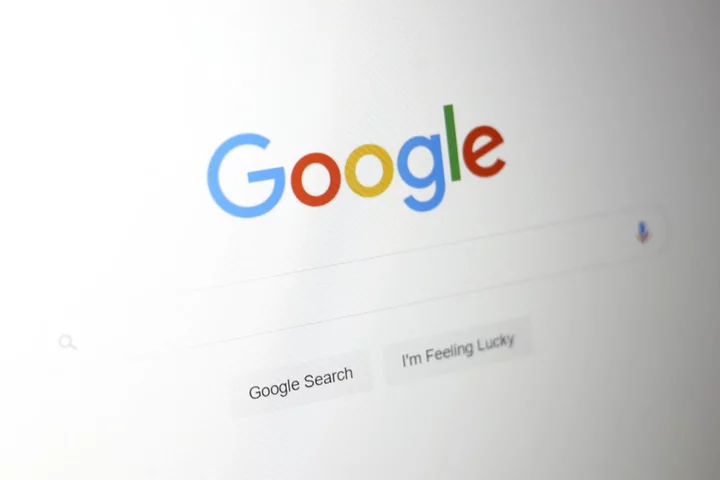
‘Is AI dangerous?’ UK’s most Googled questions about artificial intelligence
People in the UK want to know how artificial intelligence works, how to use it to make money and whether it will take their jobs, according to Google. The search engine company revealed the UK’s most googled questions about AI over the past three months ahead of Rishi Sunak’s AI summit. Here, PA takes a look at some of the burning questions the UK wants the answers to. What is AI? In a nutshell, AI refers to the training of machines to solve problems and make decisions in a way that is similar to how the human brain works. However, to boil AI down to a short definition would be to underestimate its complexity and variations. For example, “weak” or “narrow” AI is AI trained to perform specific tasks and enables technology people may be familiar with in their home, such as Amazon’s Alexa or autonomous vehicles, while “strong AI”, comprised of Artificial General Intelligence and Artificial Super Intelligence, refers to AI where a machine would have an intelligence equal to or surpassing humans. What is generative AI? Generative AI refers to models which can create something completely new based on the vast data they have been trained on. Recent examples of this include ChatGPT, where users can make requests such as “write a poem that features the Battle of Waterloo”. ChatGPT would then produce a new poem based on the material it had been trained on, in this case vast quantities of history books and poetry. How to make AI song covers? Much like the production of a new poem using AI, it is possible to create new music using models which have been trained on previously recorded sounds. However, this is proving tricky ground for human musicians who fear their work may be used without their consent to produce brand new creations, or even to imitate them. Spotify boss Daniel Ek told the BBC he thought there were legitimate use cases for the technology in music, but that it should not be used to impersonate real artists without their consent. He said there were three “buckets” of AI use in music: tools such as auto-tune, which he said was acceptable; software which impersonated artists, which was not; and a more controversial middle ground where AI-generated music was inspired by a specific artist but did not directly mimic them. How to make money with AI? The possibilities for making money using AI are seemingly endless, with people using it to produce music, books, essays, translations and much more. AI can also be used to streamline processes in existing jobs, producing presentations or documents in a fraction of the time it would usually take. However, the issue of copyright looms large over AI’s creative uses. Who created AI? While the concept has been discussed in art and culture for centuries, the 20th century will be remembered as the period when AI began to take practical shape. In 1950, wartime codebreaker Alan Turing published a paper called Computing Machinery and Intelligence in which he considered whether machines could think, introducing what became known as the Turing Test where a human would attempt to distinguish between the responses of another human and a computer. Six years later computer scientist John McCarthy coined the term “artificial intelligence” during the inaugural AI conference at Dartmouth College, while in the same year the first running AI software programme was created by Allen Newell, JC Shaw and Herbert Simon. Is AI dangerous? Tesla, SpaceX and X owner Elon Musk told the PA news agency at the UK’s AI Safety Summit: “I think AI is one of the biggest threats (to humans). “We have for the first time the situation where we have something that is going to be far smarter than the smartest human. “We’re not stronger or faster than other creatures, but we are more intelligent, and here we are for the first time, really in human history, with something that is going to be far more intelligent than us. “It’s not clear to me if we can control such a thing, but I think we can aspire to guide it in a direction that’s beneficial to humanity.” Will AI take my job? As with all technological advances, AI will change the way we work, making some jobs redundant but creating others too. Rishi Sunak recently attempted to assuage people’s fears, saying: “It’s important to recognise that AI doesn’t just automate and take people’s jobs. “A better way to think about it is as a co-pilot. “As with all technologies, they change our labour market, I think over time of course they make our economy more prosperous, more productive. “They create more growth overall but it does mean that there are changes in the labour market.” Read More Big tech poses ‘existential threat’ to UK journalism, survey of editors finds King warns of urgent need to ‘combat significant risks of powerful AI’ Kamala Harris arrives in the UK ahead of AI safety summit Study finds ‘deepfakes’ from Ukraine war undermining trust in conflict footage More than 500 potential cyber attacks logged every second, BT says AI being used to create child abuse imagery, watchdog warns
1970-01-01 08:00
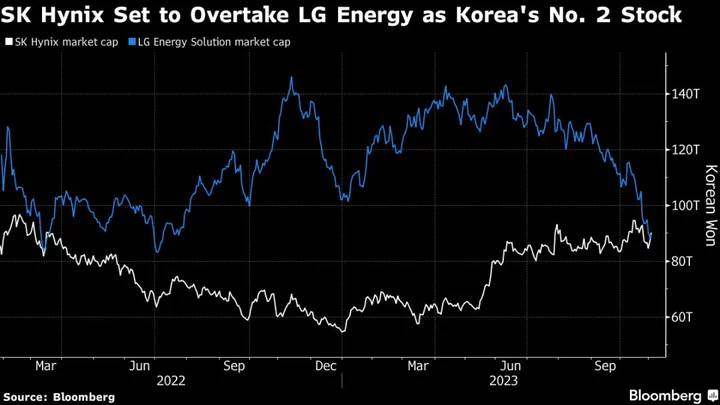
Chipmaker SK Hynix Set to Grab Korea’s No. 2 Spot From LG Energy
South Korean chipmaker SK Hynix Inc. is poised to overtake LG Energy Solution Ltd. as the country’s second-largest
1970-01-01 08:00

Agoa Forum: Has the US trade pact benefited Africa?
The future of what was billed as a game-changing pact between Africa and the US is in the balance.
1970-01-01 08:00
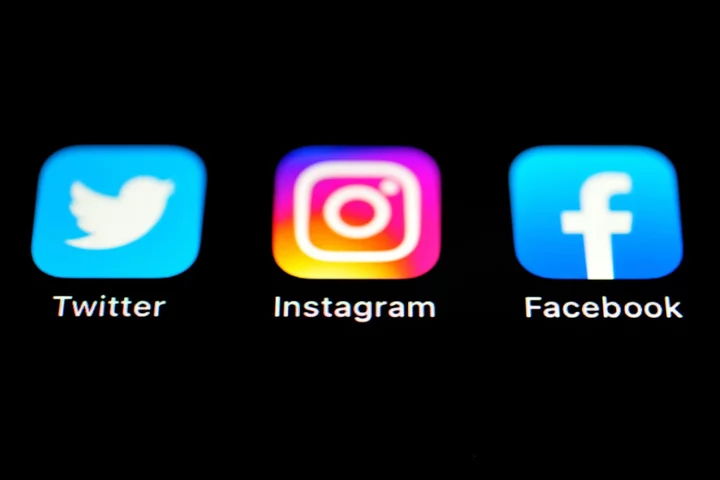
Big tech poses ‘existential threat’ to UK journalism, survey of editors finds
The “anti-competitive practices” of big tech firms pose an “existential threat” to UK journalism, while the risks from AI-generated misinformation are “greater than ever before”, editors have warned. A poll by the News Media Association, a trade body for the newspaper industry, found 90% of editors believe Google and Meta pose a threat to the news industry. The Government has been urged to resist calls to water down the Digital Markets, Competition and Consumers Bill, which will force tech firms to pay news publishers for content used on their platforms. The Government must resist pressure from the tech platforms to water down the Digital Markets, Competition and Consumers Bill and pass this sensible legislation, which will help to level the playing field field between platforms and publishers and spur innovation and competition across the UK digital economy Owen Meredith, News Media Association Some 97% of editors said the risks posed by AI-generated misinformation are “greater than ever before” in the run-up to a general election, which is likely to take place next year. More than three-quarters (77%) of editors said news blackouts enforced by tech platforms weaken democratic engagement by limiting public access to trusted news. News Media Association chief executive Owen Meredith said: “The findings of our survey clearly show the huge level of concern from editors about the impact of the tech platforms’ activities on the sustainability of journalism. “The Government must resist pressure from the tech platforms to water down the Digital Markets, Competition and Consumers Bill and pass this sensible legislation, which will help to level the playing field field between platforms and publishers and spur innovation and competition across the UK digital economy.” Katie French, regional group editor at Newsquest, which owns many local newspapers, said: “While tech platforms have greatly enhanced our way of life by allowing unrestricted access to information and increased connection, they have severely impacted the business of news, and news brands such as my own have not been fairly compensated. “My titles have more readers than ever before in their history thanks to the global and national audiences our online content is exposed to. “However, we receive very little in the way of fair remuneration for the rich and high-quality service our content provides even by hosting our content or signposting readers to our stories through search engines. “Our very presence is giving credibility to these platforms that otherwise would be filled with clickbait, nonsense and unregulated information.” Original journalism everywhere should be protected Sun editor Victoria Newton The BBC’s plans to cut local radio provision and boost its online local news were also criticised, with 86% fearing it will “damage independent local journalism in the UK.” Sun editor Victoria Newton told the NMA’s Journalism Matters parliamentary reception on Tuesday: “Original journalism everywhere should be protected, as should the publishers that spend and invest in journalism. “I make a special mention for our vital local newspapers, without whom court cases and local democracy would go unreported. “These outlets should also be protected from the BBC’s expansionist activities, which risk driving them out of the market.” – A total of 30 editors responded to the online survey, which was carried out between August and September. Read More King warns of urgent need to ‘combat significant risks of powerful AI’ Kamala Harris arrives in the UK ahead of AI safety summit Study finds ‘deepfakes’ from Ukraine war undermining trust in conflict footage More than 500 potential cyber attacks logged every second, BT says AI being used to create child abuse imagery, watchdog warns ChatGPT and other chatbots ‘can be tricked into making code for cyber attacks’
1970-01-01 08:00

Boeing Says Its Services Division Was Hit by Cyberattack
Boeing Co. confirmed it is dealing with a “cyber incident” that targeted elements of the parts and distribution
1970-01-01 08:00
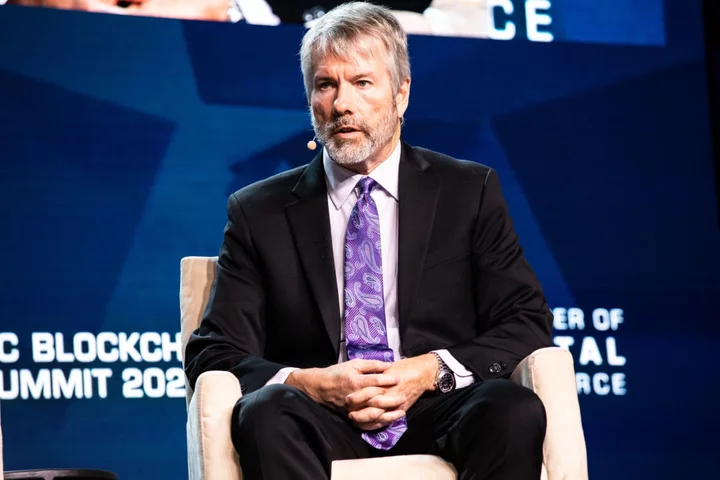
Saylor’s MicroStrategy Posts Loss After Writing Down Bitcoin Holdings
MicroStrategy Inc., the enterprise-software maker that is the largest publicly-traded holder of Bitcoin, posted a third-quarter loss after
1970-01-01 08:00
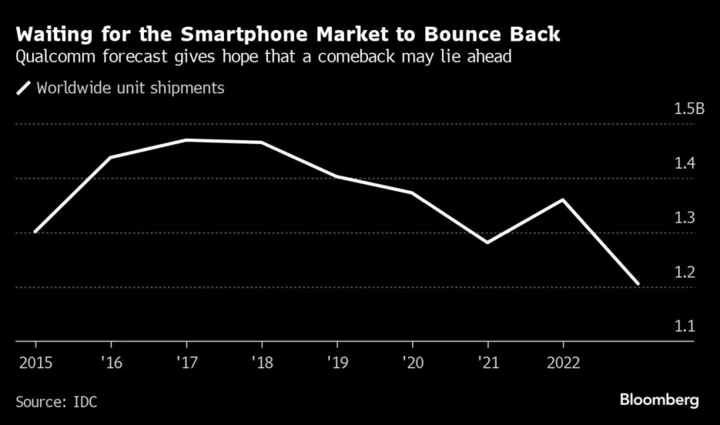
Qualcomm Gives Upbeat Forecast in Sign Slump Finally Easing
Qualcomm Inc., the largest seller of smartphone chips, gave a better-than-expected revenue forecast for the current quarter, indicating
1970-01-01 08:00
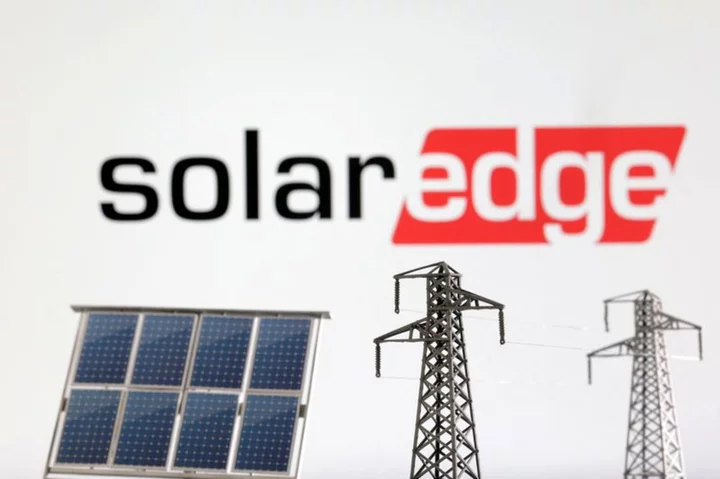
SolarEdge forecasts dour Q4 revenue as demand concerns loom; shares plunge
SolarEdge Technologies on Wednesday forecast fourth-quarter revenue below Wall Street estimates on weak demand for its solar inverters,
1970-01-01 08:00
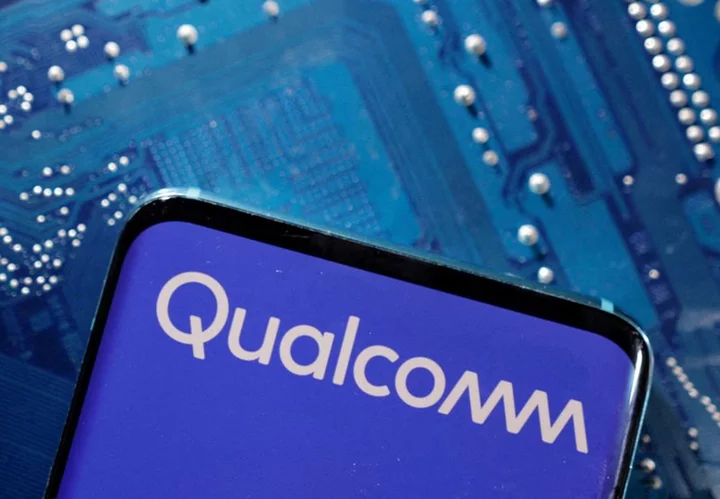
Qualcomm forecasts beast estimates, shares rise as smartphone slump eases
By Stephen Nellis and Chavi Mehta (Reuters) -Chip designer Qualcomm forecast first-quarter sales and profits above Wall Street targets on
1970-01-01 08:00
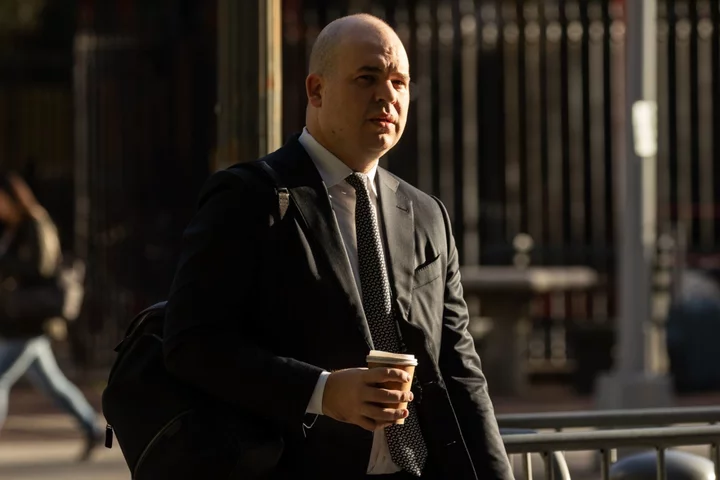
Bankman-Fried Had Bad Hair, But Wasn’t a Villain, Lawyer Says
Sam Bankman-Fried has been unfairly turned into a “villain” and a “monster” in a movie about a grand
1970-01-01 08:00

Disney+ launches cheaper subscription with ads
Disney has launched a new, cheaper subscription of its streaming service, with ads. The company will let subscribers pay £4.99 for the service if they are willing to have advertising injected at the start of films and inside TV shows. The advertising will be limited and users will see how long those ads are going to last, the company. Disney is just the latest in a range of subscription services, such as Netflix, to launch a cheaper version of the streaming service that is supported by advertising. The changes come amid a cost of living crisis and increasing competition for TV streaming subscriptions. As well as seeing ads, users on the new cheaper tier will be limited to watching two streams at once on one subscription, and will not be able to download offline. Netflix launched its ad-supported tier with similar limits, though it has restricted them somewhat in the time since. On Disney+, the more expensive ad-free tiers include the standard package at £7.99, or £79.90 annually, which has the same video and audio quality as the lower level but allows for downloads on up to 10 devices, while the premium model at £10.99, or £109.90, has improved video and audio quality and allows four devices to watch concurrently. The streaming giant has a host of series including The Bear, Elemental, and Coleen Rooney: The Real Wagatha Story. It also launched the new series following the Kardashian-Jenner family last year, titled The Kardashians, which follows on from its predecessor, Keeping Up With The Kardashians, in documenting the personal lives and business ventures of the siblings. General manager of Disney+ Europe, Middle East and Africa (EMEA), Luke Bradley Jones, said: “Today’s launch represents a significant milestone for Disney+ in the UK, offering customers the flexibility to select a plan that suits their needs and budget. “All of our customers can enjoy a wide range collection of award-winning original TV series and blockbuster movies, including FX’s The Bear, Elemental, and Coleen Rooney: The Real Wagatha Story, along with fan favourites like Season 2 of Marvel Studios’ Loki and the latest series of The Simpsons and Grey’s Anatomy.” Deborah Armstrong, country manager of the UK and Ireland for GM Media Networks and advertising EMEA, said: “Disney+ offers advertisers a prime opportunity to join our premium streaming platform, featuring our beloved brands and an exceptional line-up of movies and TV series. “The response from our clients and agencies has been overwhelmingly positive, firmly showcasing the quality of our content and the strong bond our brands share with audiences worldwide. “We’re partnering with a fantastic range of brands in all markets right from day one.” Additional reporting by agencies
1970-01-01 08:00
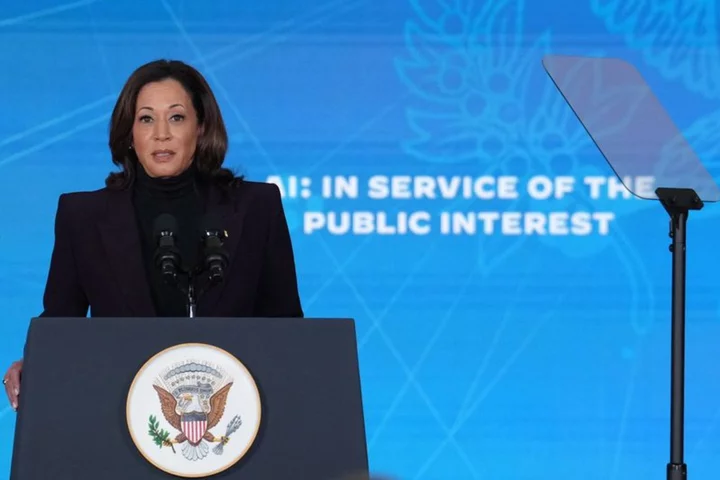
US Vice President Harris calls for action on "full spectrum" of AI risks
By Andrew MacAskill and Martin Coulter LONDON (Reuters) -U.S. Vice President Kamala Harris on Wednesday called for urgent action to
1970-01-01 08:00
